Gaining healthcare and nursing competencies
As healthcare professionals, it’s essential to continuously improve our skills and knowledge to provide the best possible care to our patients. Gaining healthcare and nursing competencies is crucial for delivering high-quality patient care, ensuring patient safety, and advancing your career in the healthcare industry.
We have put this article and explainer videos together to understand better how the process works and where our training course fit in.
How does competency work?
Competency is like learning to drive, for a quick example we use the clinical skill, catheterisation.
Are you able to drive safely and legally after learning the theory?
The answer is the same for learning a new clinical skill.
NO!
There is more to it and to maintain safety for all involved.
Let’s look at Emily’s scenario.
Emily supported a colleague and observed a catheterisation procedure. Emily then became interested in being able to perform the skill.
This is what the road map to competency looks like.
Emily first enquires about booking herself and her team onto a course with Caring For Care.
A member of the friendly team calls Emily to discuss her training needs.
Emily asks the question ‘will I be competent after attending the training session next week?’.
A helpful member of The Caring For Care Team answers her ‘No Emily, you will not be competent from the training session alone.
Although, we are aware some other training providers may say you are please question them of how this will be achieved without work/placement-based supervision.
Emily says that shortcuts are not in her practice as safety comes first and she books on to the training.
What Next
Emily attends theory training – this is like learning the theory of driving.
Then, Emily practices the skill on a manikin, and the classroom assesses her – this is similar to taking driving lessons and a mock test.
After Emily’s classroom assessment, she is then observed in her workplace.
Emily then has the required number of workplace assessments and passes.
This is like the practical test when learning to drive.
Emily has a discussion with her manager about her confidence and commitment to continuing her professional development.
Emily is signed off as competent and continues to broaden her experience within her scope of practice.
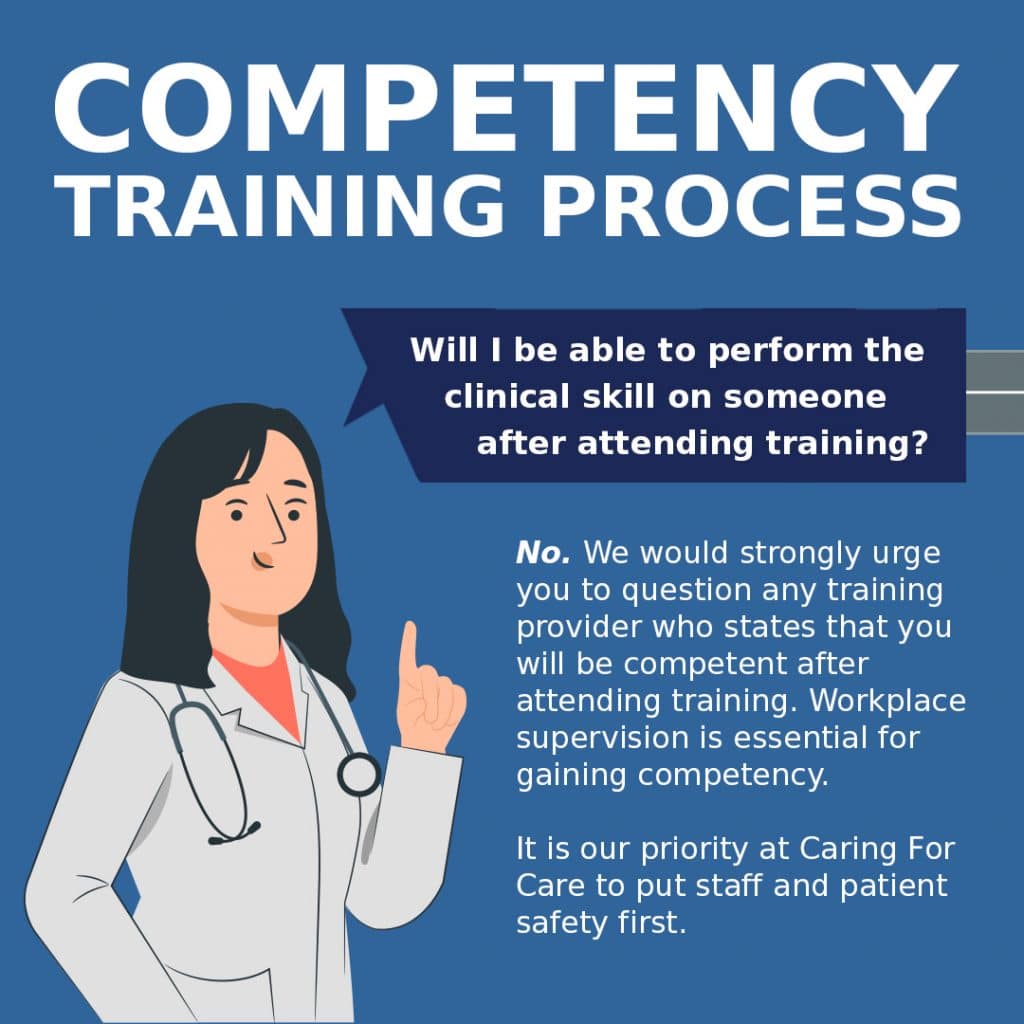
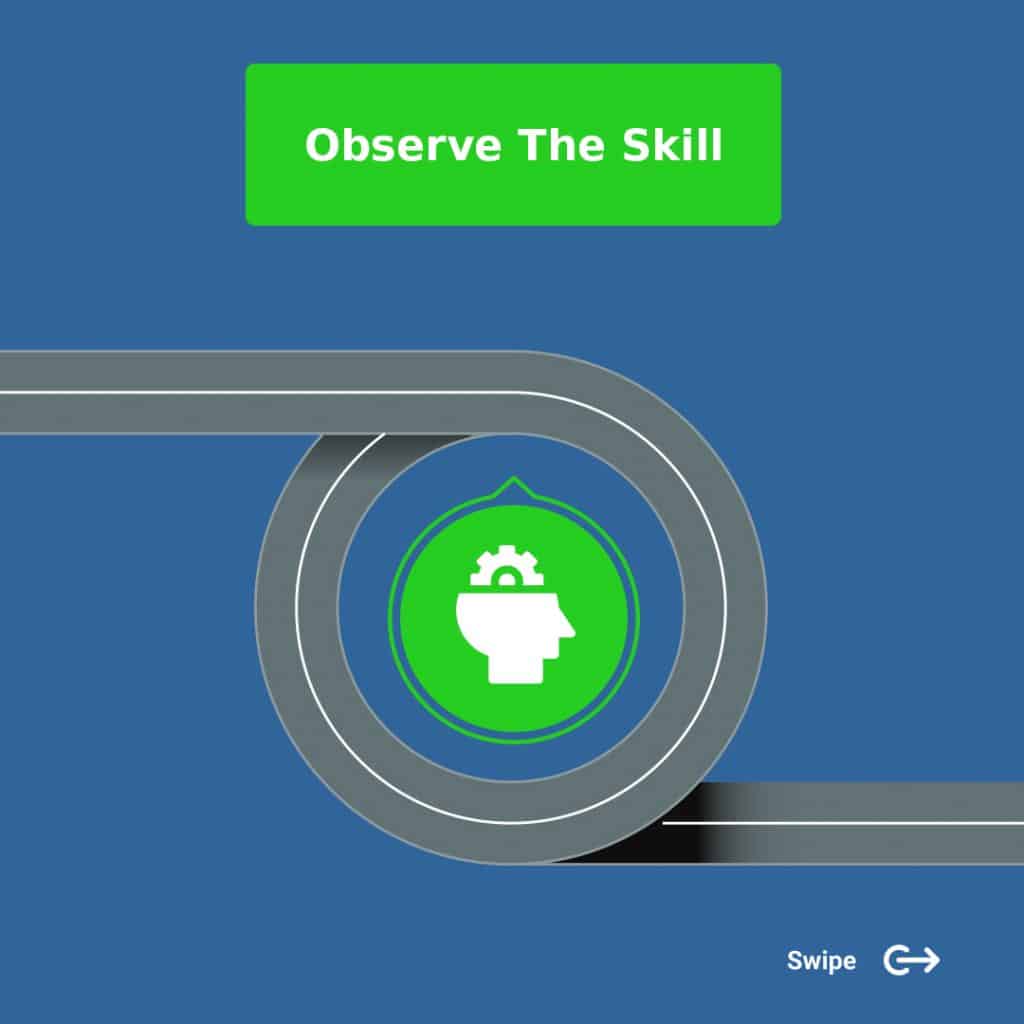
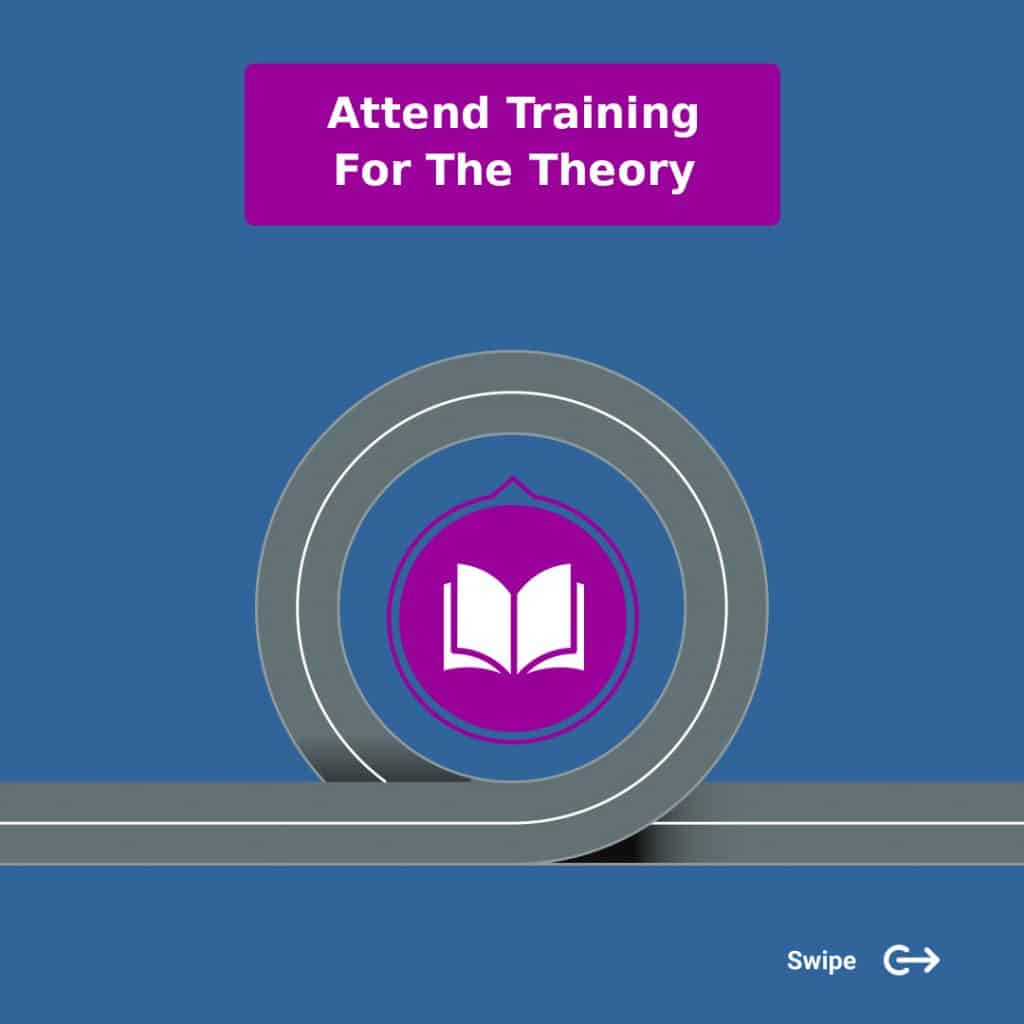
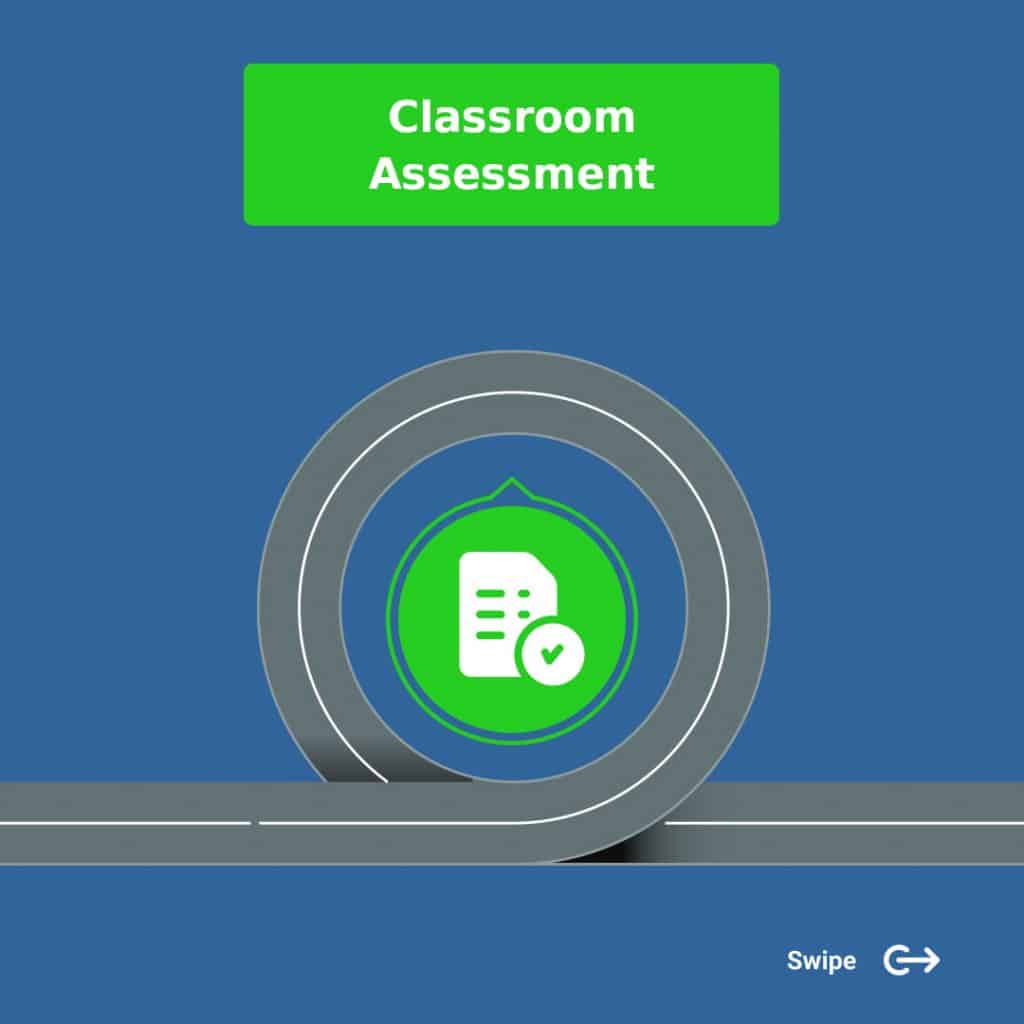
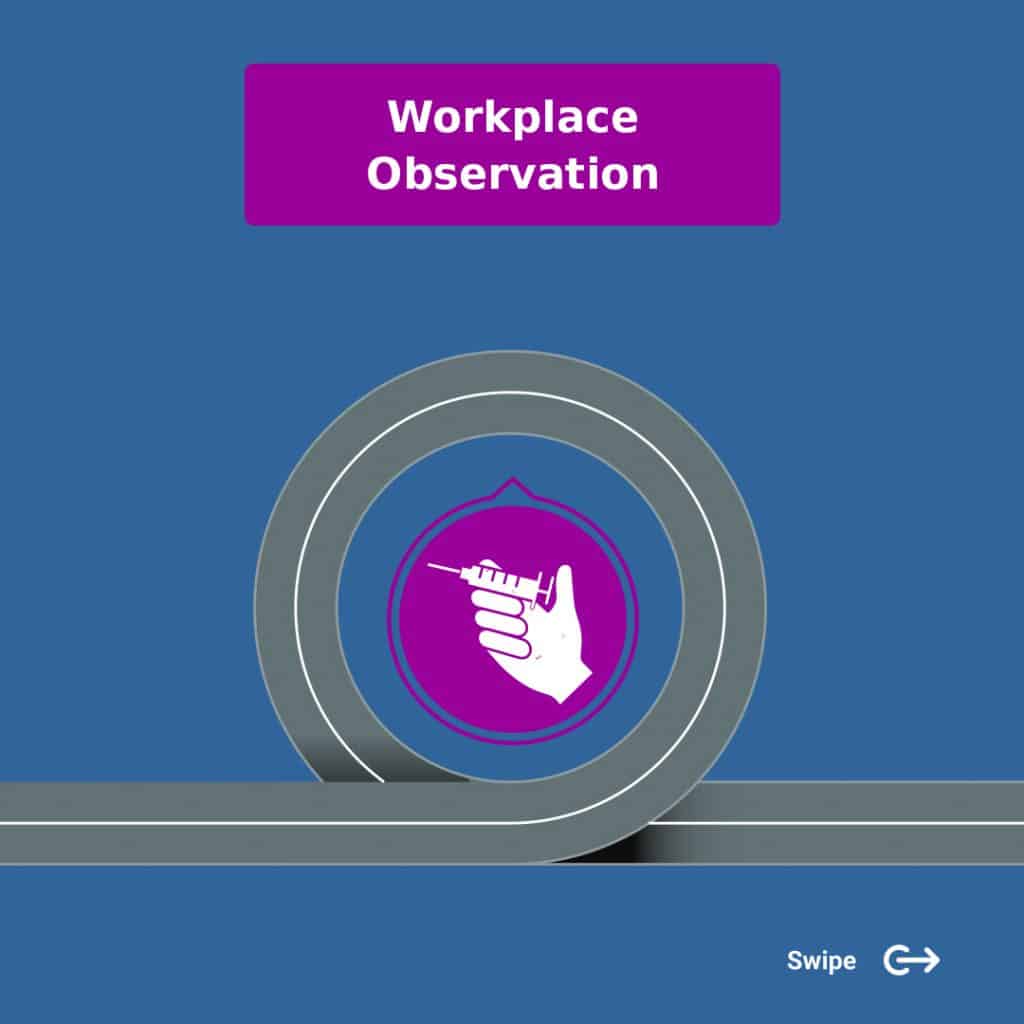
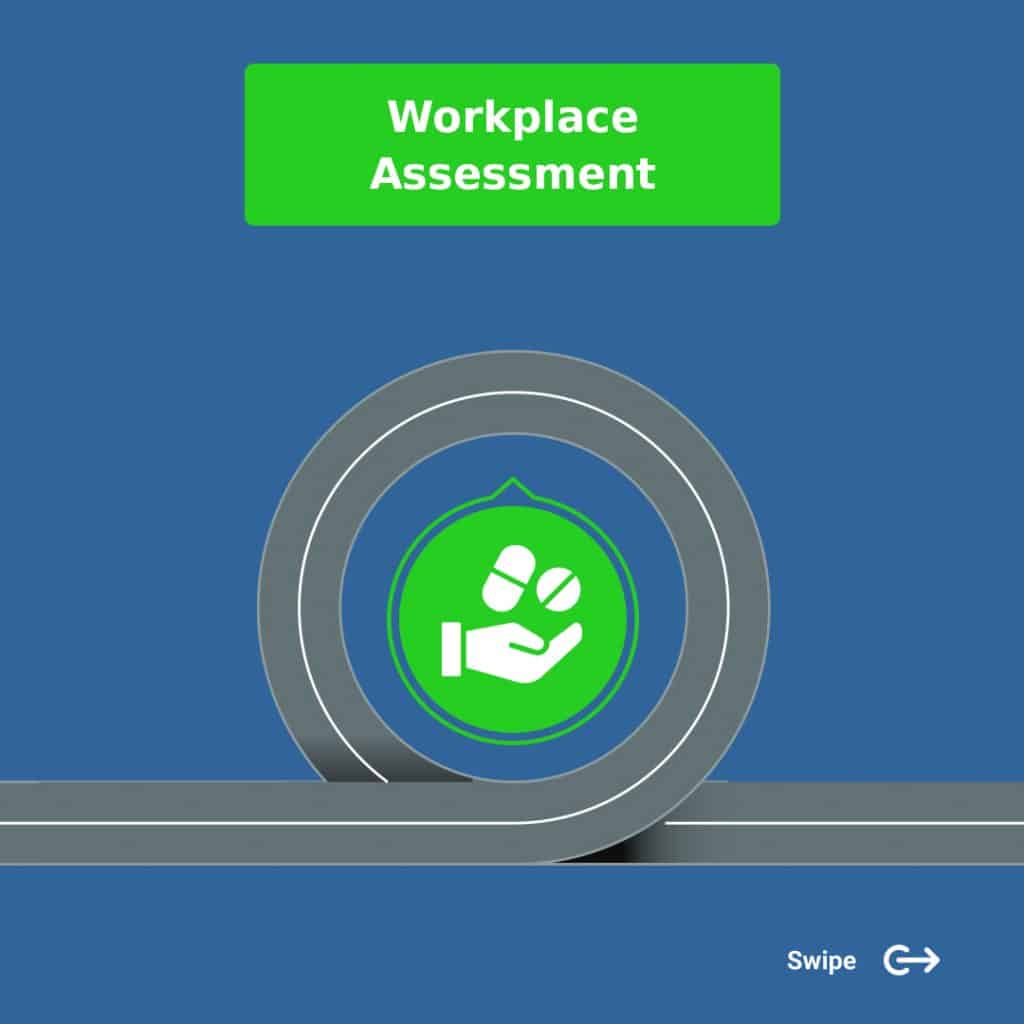
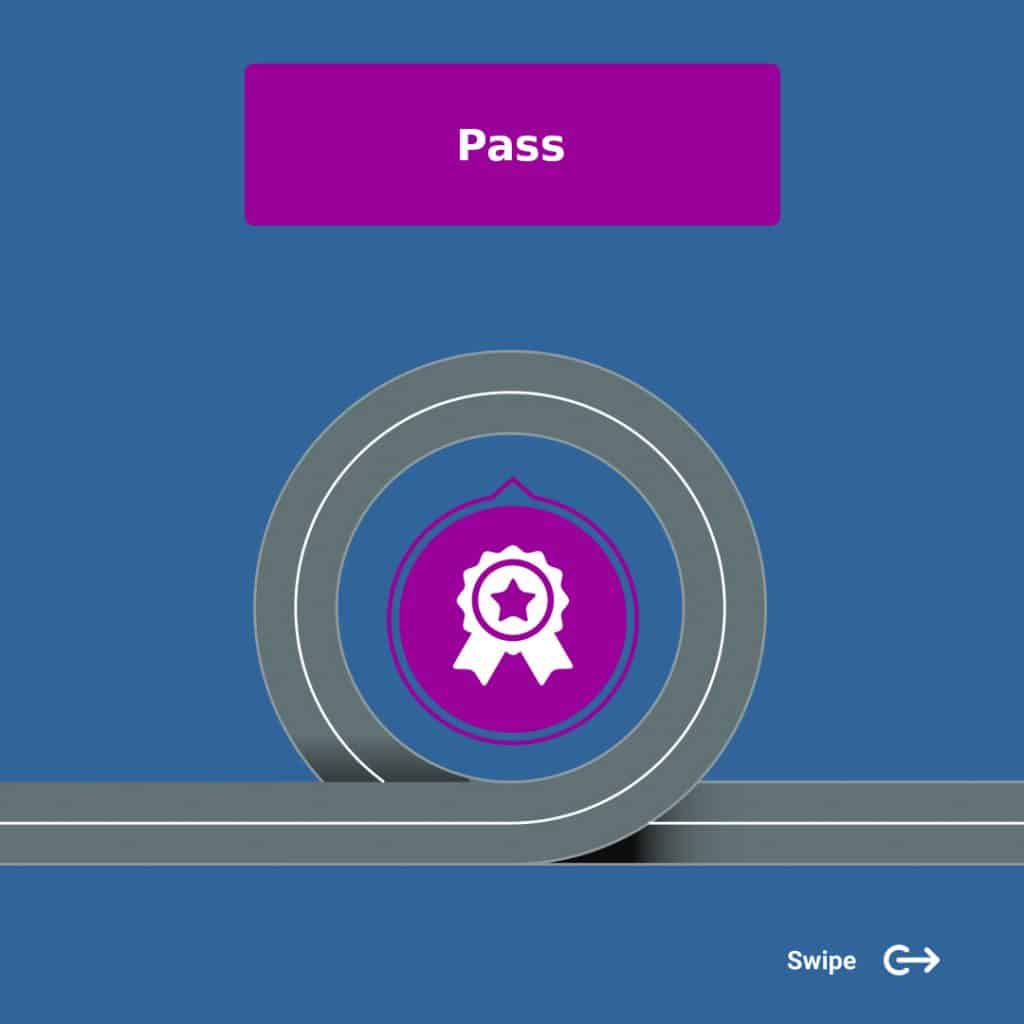
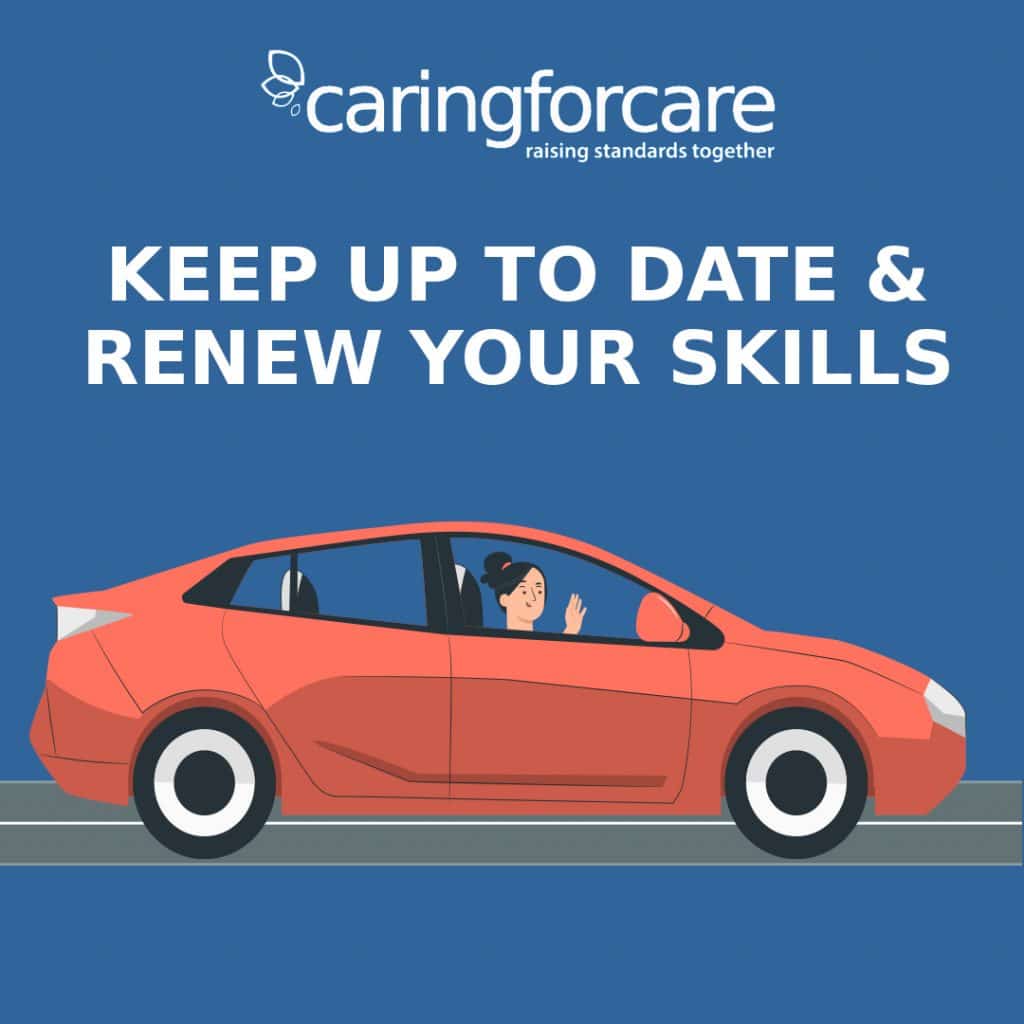
What are the benefits of gaining clinical competence?
Gaining competency within care and nursing is essential, we have listed a few reasons why below:
- Better patient outcomes: A competent healthcare professional can provide safe and effective care, leading to better patient outcomes. When healthcare professionals have a deep understanding of their responsibilities and have the skills to carry out their duties, they can offer comprehensive patient care that leads to improved health outcomes.
- Increased patient safety: Competent healthcare professionals are better equipped to identify potential safety hazards and implement measures to prevent them. They can identify patient needs and risks and respond appropriately, ensuring patient safety.
- Improved career prospects: Continuous professional development (CPD) is crucial in the healthcare industry, and gaining competency in care and nursing can open up many opportunities for career progression. Healthcare organizations seek individuals committed to their professional development and competence in their field.
- Enhanced confidence: By gaining competency, healthcare professionals can feel more confident in their ability to provide care. Confidence is essential in the healthcare industry as it can help build trust with patients, enhance communication with colleagues and lead to better teamwork.
- Adherence to professional standards: Gaining competency within care and nursing means that you are meeting the professional standards set out by your organization and regulatory body. It ensures that you are working ethically, safely, and within the scope of your role, promoting good practice.
How can you gain competency within care and nursing?
Gaining competence within care and nursing is a multi part process, this includes the below:
- Continuous Professional Development (CPD): This is the process of ongoing learning and development to enhance skills, knowledge and performance. Healthcare professionals can undertake training courses, attend conferences, and workshops to gain new knowledge, skills, and competencies.
- Supervision and mentoring: Regular supervision and mentoring can provide healthcare professionals with valuable feedback on their performance, identify areas for improvement, and support ongoing professional development.
- Reflective practice: This is a process of self-evaluation and critical thinking, allowing healthcare professionals to reflect on their practice, identify areas for improvement, and enhance their competence.
- Networking: Networking with other healthcare professionals can provide opportunities to share knowledge, ideas, and experiences. It can help individuals stay up-to-date with the latest developments in their field, enhancing their competence.
Related: Importance of medical competency for healthcare workers.
The roadmap to gaining competence
To help you understand we have put together a roadmap below to gaining competency and a short explainer video if you prefer to watch/listen than read.
Here at Caring For Care we would like to help make sense of how to gain competency within the health and social care sector.
Competency is the ability to do things safely and rightly, for example take bloods or administer medication. Competency is required to work towards a safer experience for both you and the individual needing assistance. Knowledge is ‘tell me’ how you do something and competency is ‘show me’ how you do something.
Healthcare and nursing competency refers to having the requisite skills, knowledge, and abilities to safely and effectively perform the duties required in healthcare and nursing roles. Competencies are job-specific – they focus on the abilities needed for a particular healthcare occupation.
In order to gain competency, you must be able to demonstrate the skill while being assessed. For this explainer, we will use the example of venepuncture which is the skill to take blood samples.
Charlie wants to learn a new skill and has taken an interest in learning how to take bloods, venepuncture.
Charlie looks at training options and decides to book onto a Caring for Care course.
You can easily do this by emailing us at enquiries@caringforcare.co.uk or calling 01782 563 333.
Charlie attends training and eagerly gets involved in the group discussions. Once the theory part of the learning is complete there is a classroom competency assessment.
The classroom competency assessment is like a mock driving test.
There are questions and answers, role play and a demonstration of the skill by Charlie on a manikin.
On his way home Charlie lets his manager know that he would like to discuss his CPD needs to continue his learning. This will help put his new knowledge to use in working towards gaining competency.
Charlie is now at work. His manager agrees that him being able to complete venepuncture procedures will help the experience of the individuals they support and help the MDT. The MDT will have time freed up to visit others who need their help.
Charlies’ manager arranges observations within the workplace as she is competent in venepuncture.
Upon Charlie asking, ‘how many observations will I need?’ His manager replies ‘Our local policy says 9 observations for competency but if you need more for confidence, we will do more’.
In the absence of a competent member of the team, Charie would have needed to contact internal team members working in other areas, external members of The MDT or have completed a work placement in a clinic.
Arranging this would require networking and supportive healthcare professionals in his area to signpost him. Then, Charlie and his manager meet back once he has completed his observations and they review the paperwork.
His manager asks Charlie some questions before signing him off as competent.
Charlies’ manager reminds him that he must:
- Only work within his scope of practice and seek assistance as required.
- Keep up to date with legislation, policies, research, techniques and training.
- Regularly attend training.
- Ask, ask and ask questions as he needs to – there is no such thing as a silly question.
Charlie feels valued and that his new skills and gained competency will make a real difference to the individuals he supports.
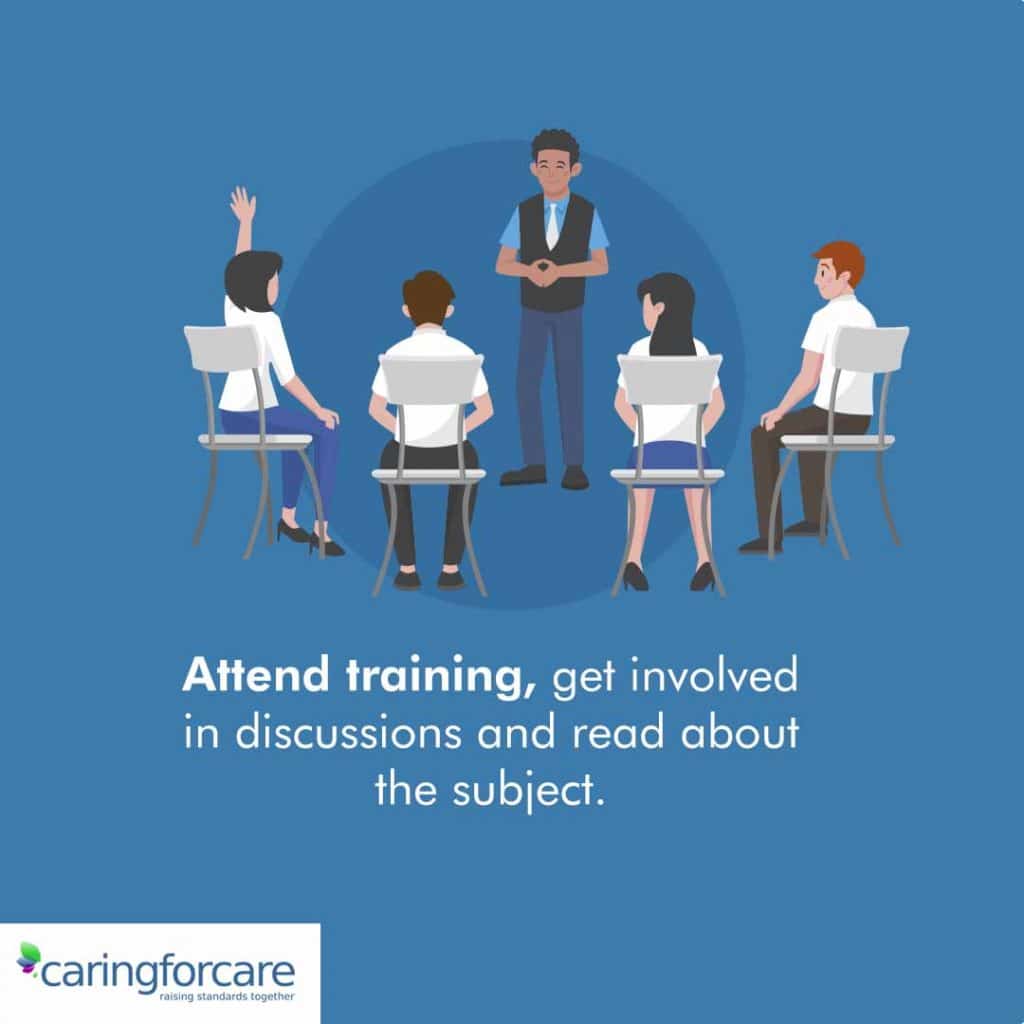
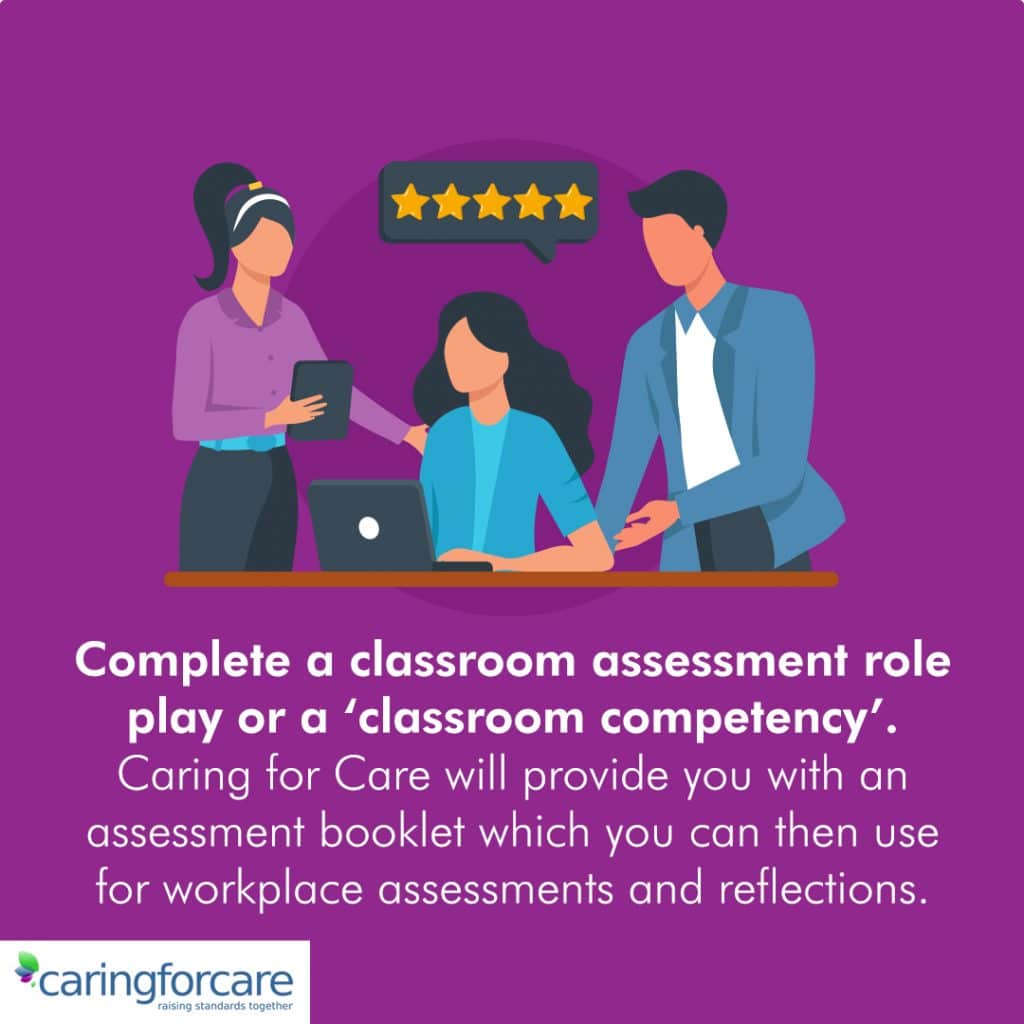
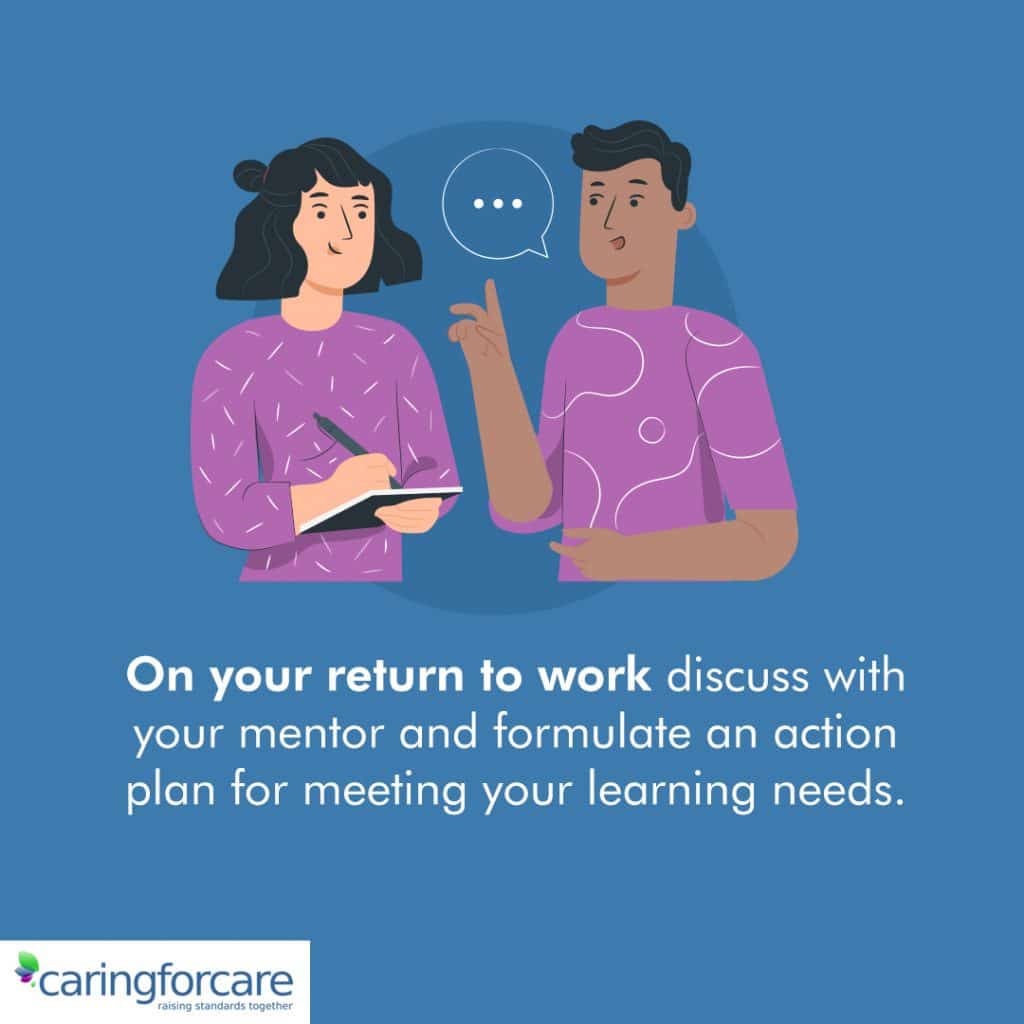
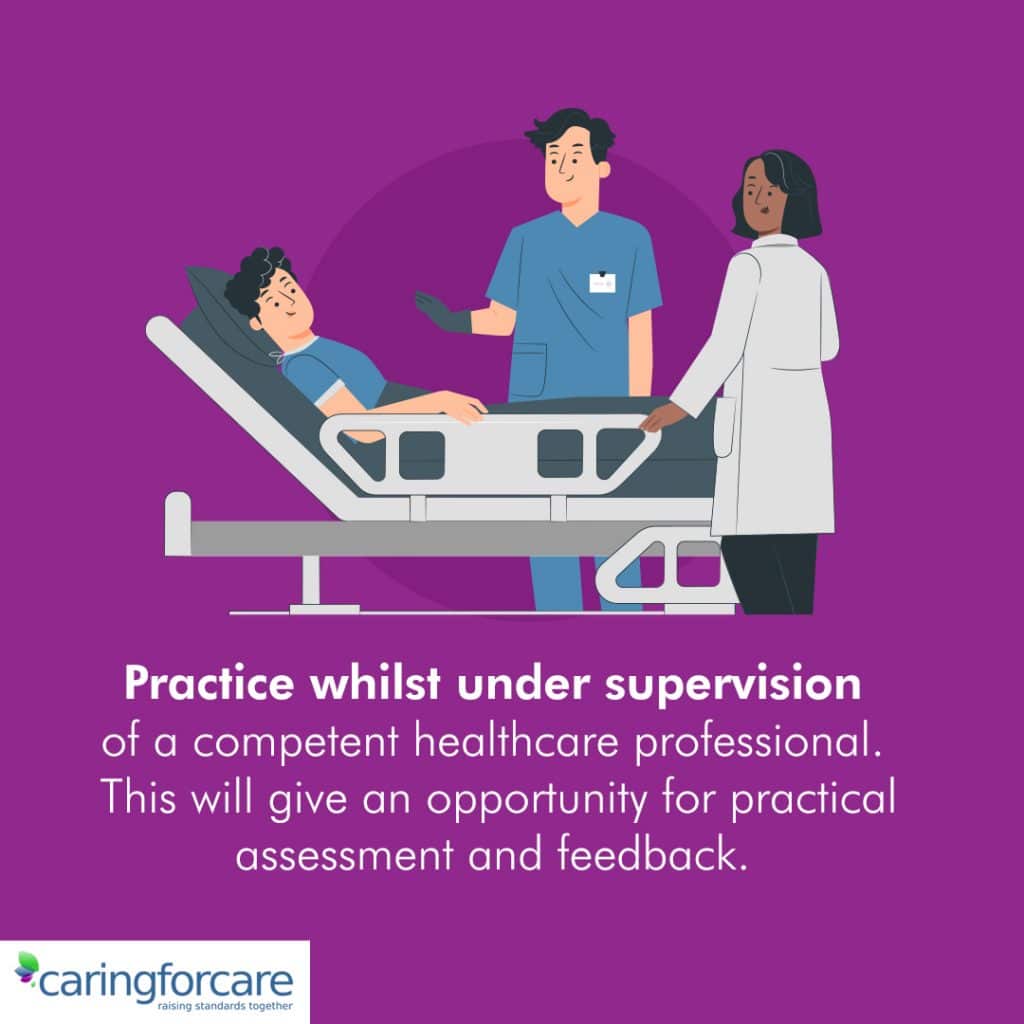
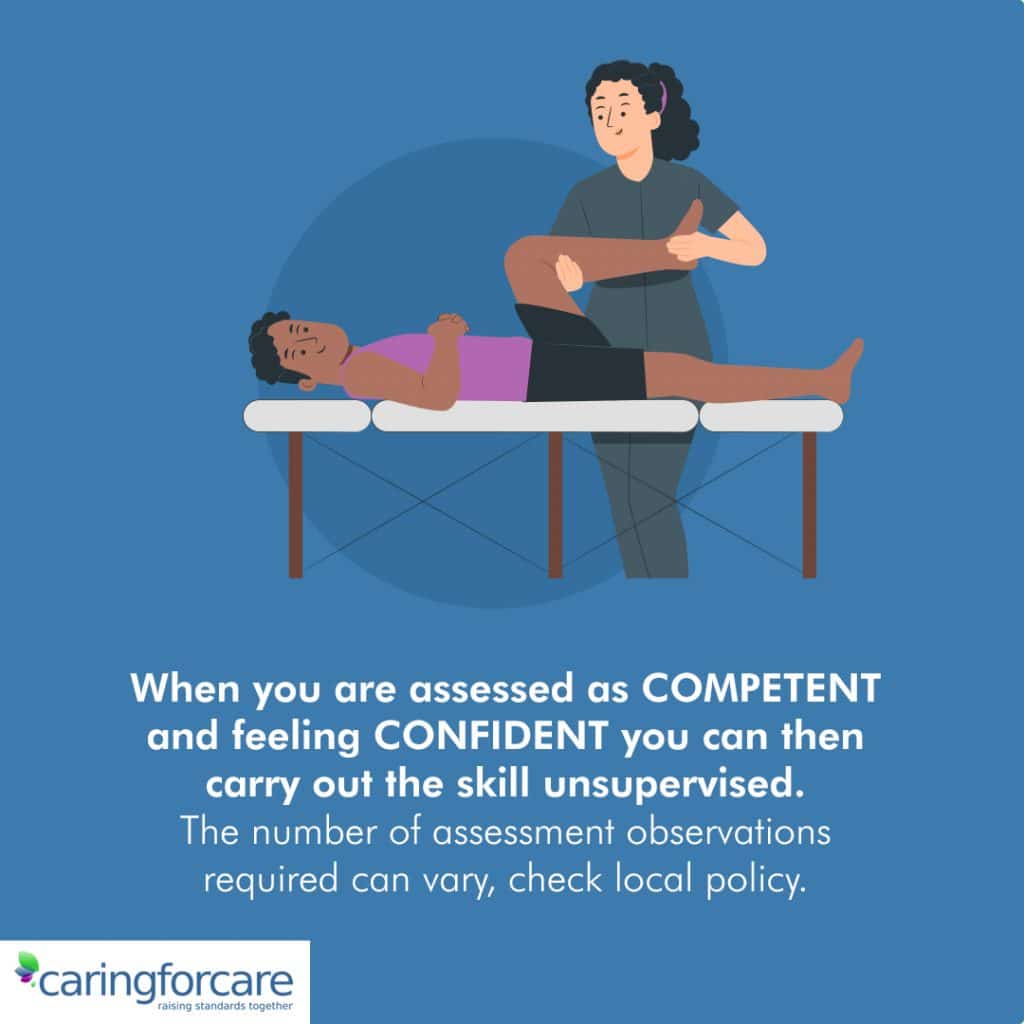
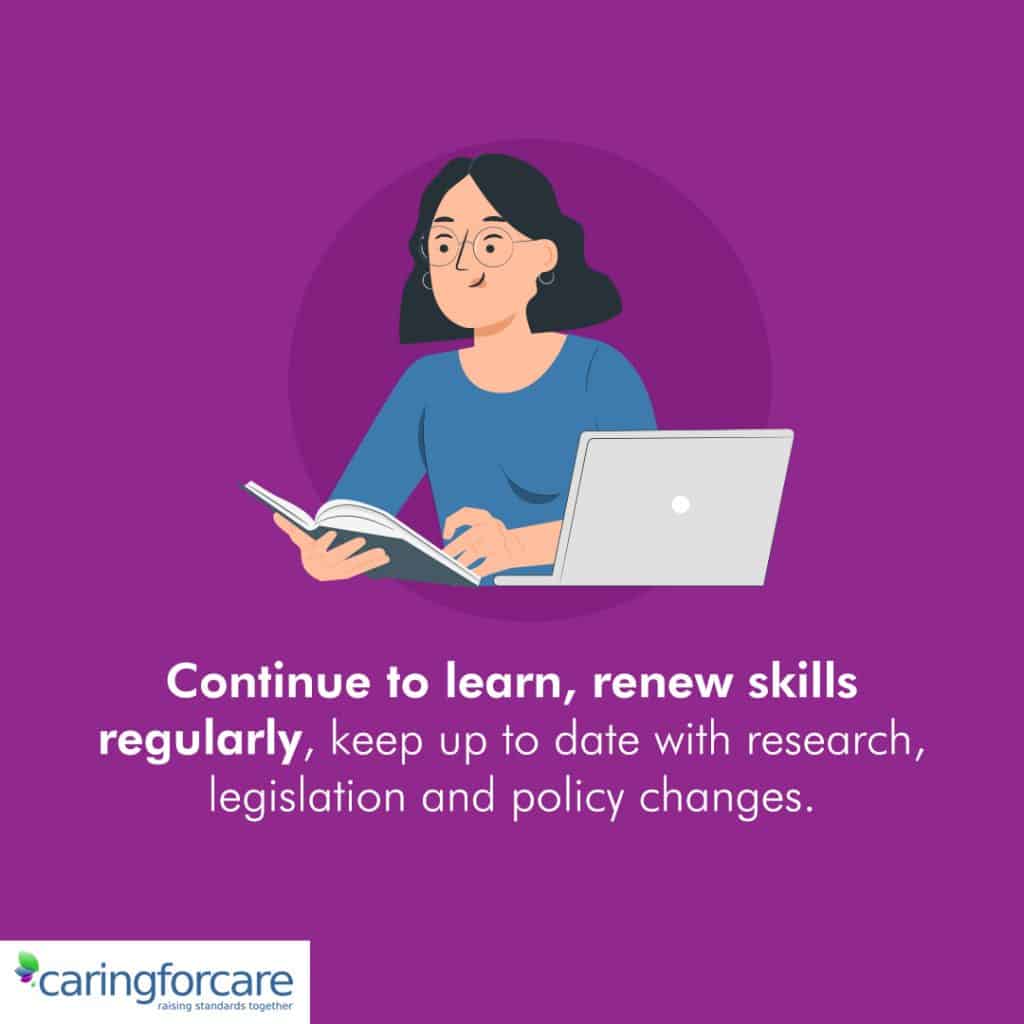
NMC Standards for competence.
The NMC have a set standard for competence for registered nurses.
This document can be found by clicking here.
Related: NMC Standard for Medicine Management
Two Frequently Asked Questions Competency
Who can assess competency?
Generally, a healthcare professional who:
1. Is competent in the skill.
2. Is up to date with training.
3. Is up to date with research and legislation.
4. Is aware of any changes to policy or techniques.
5. Regularly practices the skill.
6. Can support you with your development.
1. How many times has this happened?
2. How many times has an assessor lost their PIN when there is no negligence?
3. How many lecturers and mentors have lost their PIN due to nurses making errors?
Please email enquiries@caringforcare.co.uk or call 01782 563 333 to get your questions answered or to book a training course, and a friendly team member will be happy to assist you.
Let us Help you
We’ll help you find the right course for your needs. Tell us a little bit about your situation and what you would like to achieve.
We’ll get back to you within one working day.
